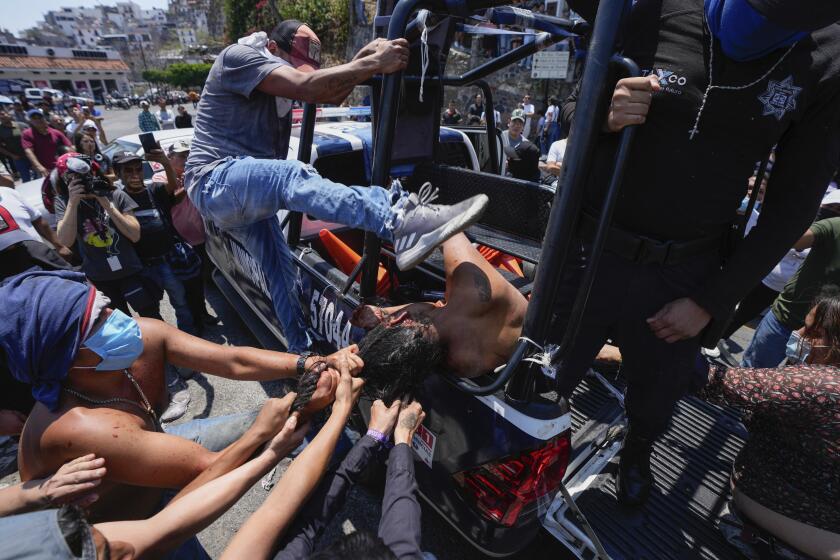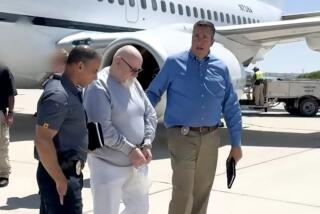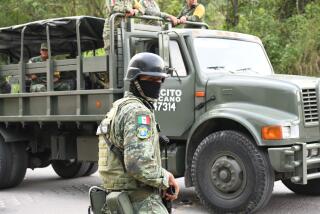3 bodies in Mexican well identified as Australian and American surfers killed for tires

MEXICO CITY — Relatives have identified three bodies found in a well as those of two Australian surfers and one American who went missing last weekend, Mexican authorities said Sunday.
Baja California state prosecutors said the relatives had viewed the corpses, recovered from a remote well about 50 feet deep, and recognized them as their loved ones.
Thieves apparently killed the three, who were on a surfing trip to Mexico’s Baja Peninsula, to steal their pickup truck because they wanted the tires. They allegedly got rid of the bodies by dumping them in the well.
The well was located some 4 miles from where the foreigners were killed. It also contained a fourth cadaver that had been there much longer.
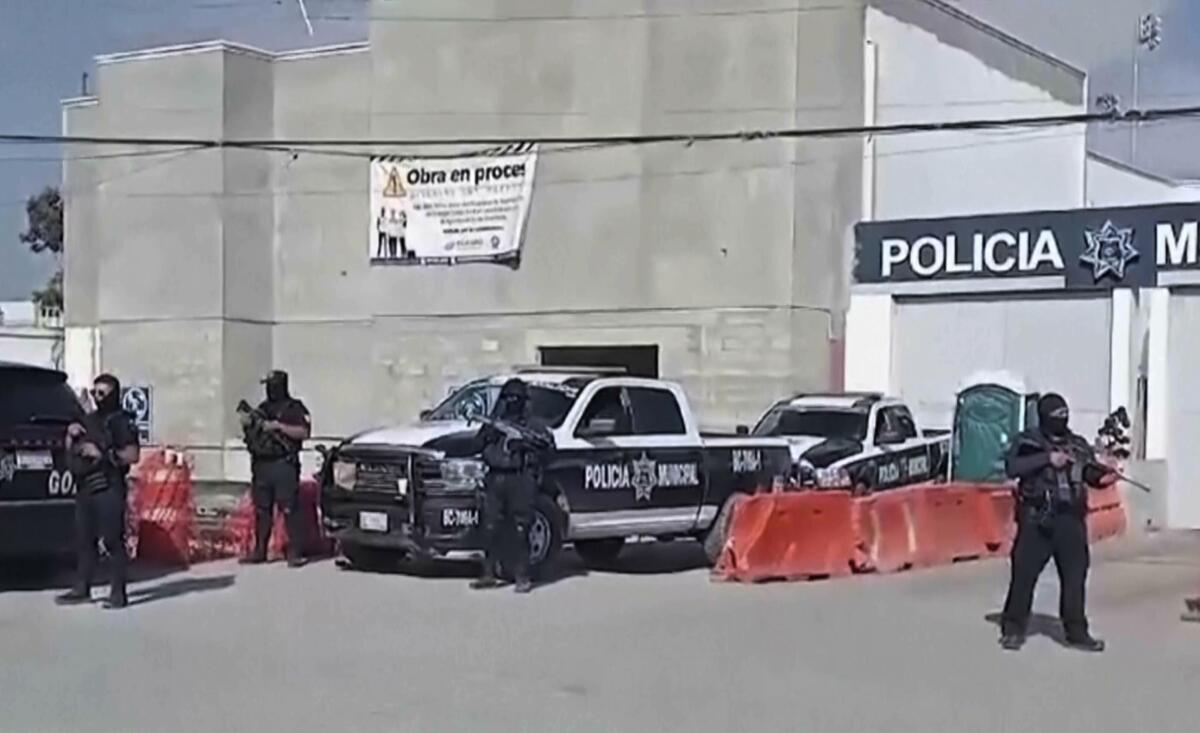
Three suspects are being held in connection with the case, which was solved far more quickly than the disappearances of thousands of Mexicans, locals said.
The victims were on a camping and surfing trip along a stretch of coast south of Ensenada, posting idyllic photos on social media of waves and isolated beaches, before they went missing last weekend.
Mexican officials say three bodies are found in the Baja California area where two Australian brothers and their American friend went missing while on a surf trip.
Chief state prosecutor María Elena Andrade Ramírez described what likely would have been moments of terror that ended the trip for brothers Jake and Callum Robinson from Australia and Jack Carter Rhoad of the United States.
She theorized that the killers saw the pickup truck and tents and wanted to steal the tires. But when the foreigners “came up and caught them, surely, they resisted.”
The suspects allegedly went to what she called “a site that is extremely hard to get to” and dumped the bodies into a well they apparently were familiar with. She said investigators were not ruling out the possibility that the same suspects had also dumped the fourth body that was found in the well.
“They may have been looking for trucks in this area,” Andrade Ramírez said.
One suspect who was believed to have directly participated in the killings was identified by his first name, in keeping with Mexican law: Jesús Gerardo, alias “El Kekas,” a slang word that means quesadillas. Andrade Ramírez said he had a criminal record.
The suspects allegedly covered the well with boards.
“It was literally almost impossible to find it,” Andrade Ramírez said. It took two hours to winch the bodies out of the well.
The site where the bodies were discovered near the township of Santo Tomás was near the area where the missing men’s tents and truck were found Thursday along the coast.
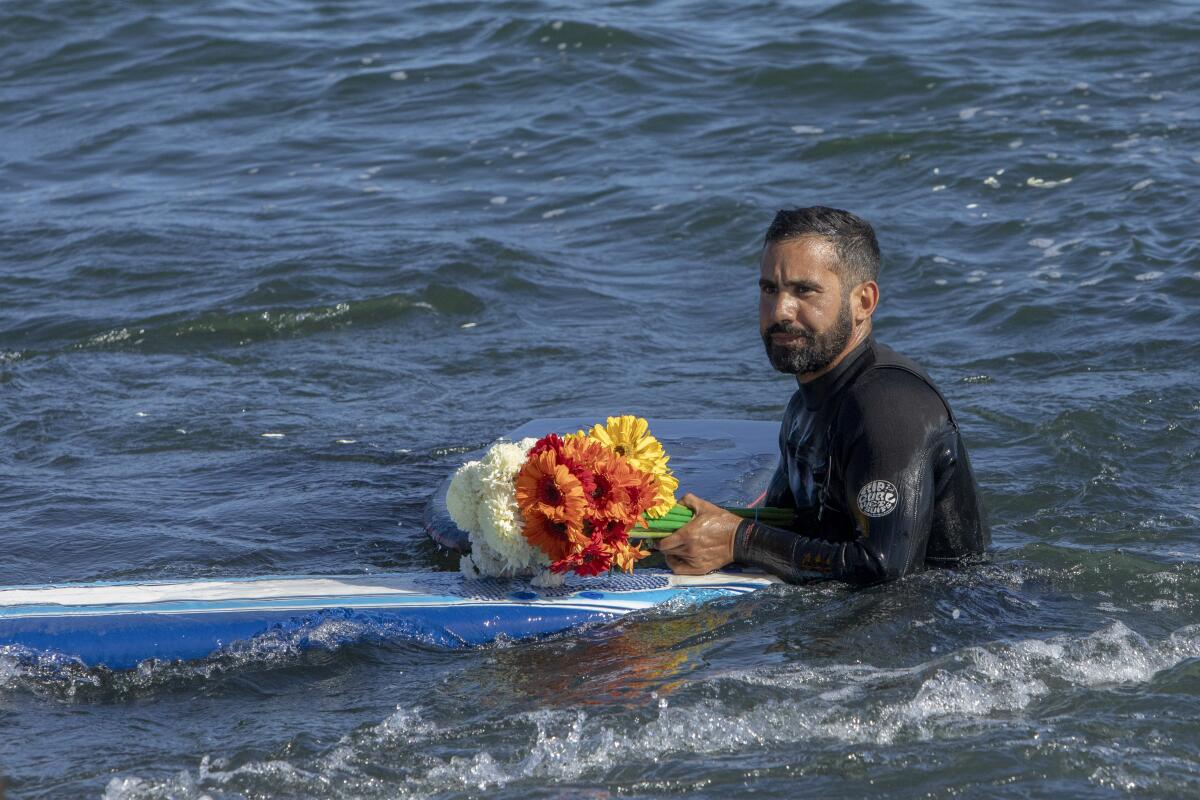
Some are questioning whether it is safe to camp along the largely deserted coast. The moderator of the Talk Baja internet forum, who has lived in the area for almost two decades, wrote in an editorial Saturday: “The reality is, the dangers of traveling to and camping in remote areas are outweighing the benefits.”
Two Australian brothers and their American friend are missing after they visited Mexico’s Baja California for a surfing trip.
At a news conference, Andrade Ramírez was questioned by one reporter who asked why a rapid search was mounted for foreigners, but when local people disappear, little is often done.
“Do you have to be a foreigner in Baja California in order for there to be an investigation if something happens to you?” asked the reporter, who did not identify herself by name. “Every investigation is different,” Andrade Ramírez replied.
Dozens of mourners, surfers and demonstrators gathered in a main plaza in Ensenada to voice anger and sadness over the deaths.
“Ensenada is a mass grave,” read one mourner’s placard. “Australia, we are with you,” one man scrawled on one of the half-dozen surf boards at the scene. A woman held up a sign that read: “They only wanted to surf — we demand safe beaches.”
A mob in the Mexican tourist city of Taxco has brutally beat a woman to death because she was suspected of kidnapping and killing a young girl.
Gabriela Acosta, a surfer, attended “to show love, solidarity and respect for the three lives that were lost.” Acosta said surfers in Baja are aware of the dangers.
Last week, the mother of the missing Australians, Debra Robinson, posted on a community Facebook page, appealing for help in finding her sons. Robinson said Callum and Jake had not been heard from since April 27. They had booked accommodation in the city of Rosarito, not far from Ensenada.
Robinson said Callum was diabetic. She mentioned that the American who was with them was named Jack Carter Rhoad, but the U.S. Embassy in Mexico City did not immediately confirm that. The U.S. State Department said it was aware of reports of a U.S. citizen missing in Baja but gave no details.
In 2015, two Australian surfers, Adam Coleman and Dean Lucas, were killed in western Sinaloa state, across the Gulf of California from the Baja Peninsula. Authorities said they were victims of highway bandits. Three suspects were arrested in that case.
More to Read
Sign up for Essential California
The most important California stories and recommendations in your inbox every morning.
You may occasionally receive promotional content from the Los Angeles Times.


